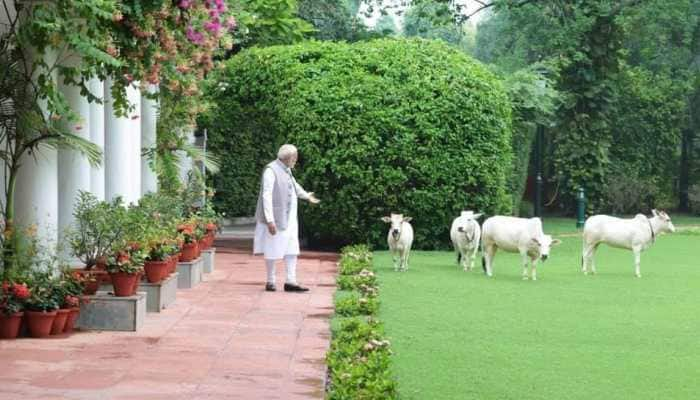Spend less on arms, more on schools: Nobel laureate Satyarthi
Countries around the world should cut their defence budgets and invest in education if child labour is to be eradicated, said Nobel laureate Kailash Satyarthi.
Trending Photos
New Delhi: Countries around the world should cut their defence budgets and invest in education if child labour is to be eradicated, said Nobel laureate Kailash Satyarthi.
The 60-year-old was awarded the Nobel Peace Prize this month with Malala Yousafzai of Pakistan for their struggle against the oppression of children.
"The world has been able to produce more guns and weapons and bullets, than the books and toys which are needed for children," Satyarthi told a news conference late on Monday.
"Do we need what people call `defence`, but what I see as an offence? We should spend more money, even out of our defence budgets, and we must give children a good education globally."
Some 30 million people - including children - are enslaved worldwide, trafficked into brothels, forced into manual labour, victims of debt bondage or even born into servitude, a global index on modern slavery showed in October last year.
Almost half are in India, where slavery ranges from bonded labour in quarries and kilns to domestic work and commercial sexual exploitation.
Satyarthi founded the charity Bachpan Bachao Andolan (Save the Childhood Movement) in 1980 and has helped rescue over 80,000 children - many of whom were trafficked from poor rural villages in states such as Bihar and Jharkhand.
The bearded, bespectacled Satyarthi - who also started a civil society movement called the Global Campaign for Education - said the cycle of illiteracy, poverty and child labour could be broken by sending children to school.
"We need more global political will. It is a matter of global funding and financing for children`s education, for their health, for their betterment," said the softly-spoken child rights activist.
"What we need is about $18 billion additional dollars to educate all the children in the world. That is less than three days of military expenditure."
Public spending on education varies across the world, with countries such as Lesotho and Cuba allocating around 13 percent of GDP to the sector, while others such as Myanmar, Bangladesh spend less than 2.5 percent, according to World Bank data.
Military budgets range from 9 percent of GDP in Saudi Arabia to 1.4 percent in Brazil.
Satyarthi called human slavery the third largest illicit trade in the world, after arms and drugs.
He described coming across bonded children outside India, working in stone quarries in Peru, cultivating cocoa beans in the Ivory Coast and stitching footballs in Pakistan.
He said the situation had improved over the years with more children going to school, lifting them out of the poverty and child labour.
There are 168 million child labourers today, he said, compared to 260 million almost two decades ago, while the number of children out of primary school has almost halved to 57 million globally.
The Nobel award, he said, has given a boost to the issue of human trafficking and child labour, and strengthened the resolve of tens of thousands of grassroots workers who risk their lives to free children from slavery.
"Every child is born with freedom, dignity and an identity. To rob them of that is violence against humanity," Satyarthi said.
Live Tv







)
)
)
)
)
)
)
)
)
)
